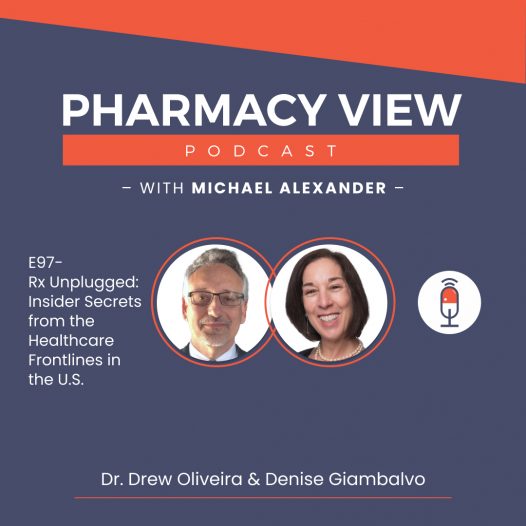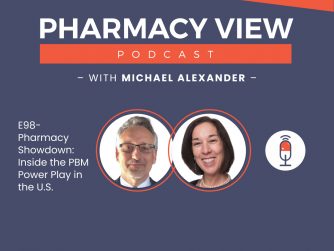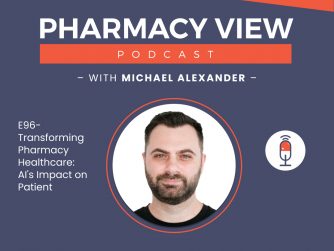In this episode of the Pharmacy View Podcast’s Rx to Riches stream, international host Michael Alexander, a Pharmacist, entrepreneur, digital health enthusiast, Co-Founder of Audrie, and the Regional Vice-President of Health Plans at Omada Health, interviews Dr. Drew Oliveira, Executive Director, Washington Health Alliance and Clinical Associate Professor, University of Washington; and Denise Giambalvo, Director, Member Engagement & Business Strategy, Washington Health Alliance. Together, they unravel the complexities of the U.S. healthcare system, exploring solutions and challenges in enhancing quality and affordability.
Denise discusses their journey from the retail industry to their current role, focusing on enhancing healthcare quality and reducing costs. They emphasize the importance of employer-led coalitions and their commitment to improving employee care delivery, particularly in Seattle, where they are engaged in their third coalition endeavor.
Dr. Drew Oliveira shares their diverse background, transitioning from family physician to the insurance industry, gaining insights into U.S. healthcare practices. They highlight the employer’s role in creating self-insured health plans and their current focus on improving quality, access, and affordability in healthcare. They are dedicated to addressing health disparities, especially within the employer community. Dr. Oliveira delves into the evolution of the U.S. healthcare system, from apothecary-driven care to the establishment of Medicare and Medicaid, while addressing persistent challenges like the uninsured population and rising healthcare costs.
Further, Dr. Oliveira explores historical attempts to implement national healthcare programs, highlighting resistance from various stakeholders and discussing proposed solutions like Medicare for All. They emphasize the importance of aligning physician workforce distribution with population needs to enhance healthcare quality and cost-effectiveness. Denise reflects on the cultural challenges associated with implementing a single-payer or government-led healthcare system in the United States, expressing concerns about government intervention potentially limiting individual freedom in healthcare decisions.
Additionally, Denise and Dr. Oliveira delve into the multifaceted role of Pharmacy Benefit Managers (PBMs), discussing their functions in claims adjudication, formulary development, and rebate negotiations. They highlight the complexities of formularies and rebate negotiations, shedding light on how these processes impact healthcare costs and patient access to medications. Overall, the episode provides insightful discussions on healthcare challenges and strategies for improvement.
Note: Stay tuned for Part 2 as we explore the American healthcare system with Dr. Drew and Denise next week.
Topics Covered
- Transition to Washington Health Alliance roles
- Importance of employer-led coalitions
- Dr. Oliveira’s diverse healthcare insights
- Employer’s role in self-insure plans
- Evolution and challenges of U.S. healthcare
- Historical attempts at national healthcare
- Cultural challenges in healthcare systems
- Role of Pharmacy Benefit Managers (PBMs)
- Complexities of formularies and rebates
Key Quotes (Time Stamps)
- “I actually worked for over two decades in retail before I left that industry and found my way into this employer-led coalition for improving the quality of care for employees while also focusing on getting the total cost of care down.” (3:41 – 4:16) – Denise Giambalvo
- “I was lucky enough to be able to come and work with Denise and our colleagues here at the Washington Health Alliance, where our real focus is how do we improve quality, how to improve access, how do we improve affordability, and how do we do it in a way that starts removing health disparities with a real focus on the employer community who is usually paying for this bill.” (5:42 – 6:05) – Dr. Drew Oliveira
- “The U.S. has, at best, 25% of the physicians in a primary care specialty, and 75% are a subspecialty or a specialty. And that results in statistically lower screening rates, lower closure of care gaps, higher utilization, higher misuse, and overuse of services. And we see that in a variety of different areas. The areas in the U.S. that have the best quality and cost results have a higher percentage of primary care and a lower percentage of specialists. And those parts of the country look the best from a quality and a cost perspective.” (18:39 – 19:31) – Dr. Drew Oliveira
- “Our population, in general, gets worried when the government starts talking about taking over health care and not getting too involved in our lives and potentially taking the choice away from us.” (20:04 – 20:21) – Denise Giambalvo
Social Media Clips (Time Stamps)
- Inside Scoop with Denise: How Retail Veterans Are Revolutionizing Healthcare (3:19 – 4:30)
- From Physician to Advocate: Dr. Drew’s Path to Healthcare Reform (4:33 – 6:05)
- Behind the Bills: Unpacking the Roots of U.S. Healthcare (7:03 – 14:26)
- From Resistance to Reform: Navigating America’s Healthcare Journey (14:34 – 19:31)
- Choice Matters: Denise Discusses the American Perspective on Healthcare (19:32 – 20:21)
- PBMs 101: Understanding the Role of Pharmacy Benefit Managers (20:23 – 23:22)
- In the Know: Dr. Drew Dives into the Role of PBMs in Healthcare (23:23 – 24:14)
- Pharma Secrets Revealed: Denise Dives into Rebates and Formularies (24:15 – 31:00)
Useful Links
Washington Health Alliance | LinkedIn








